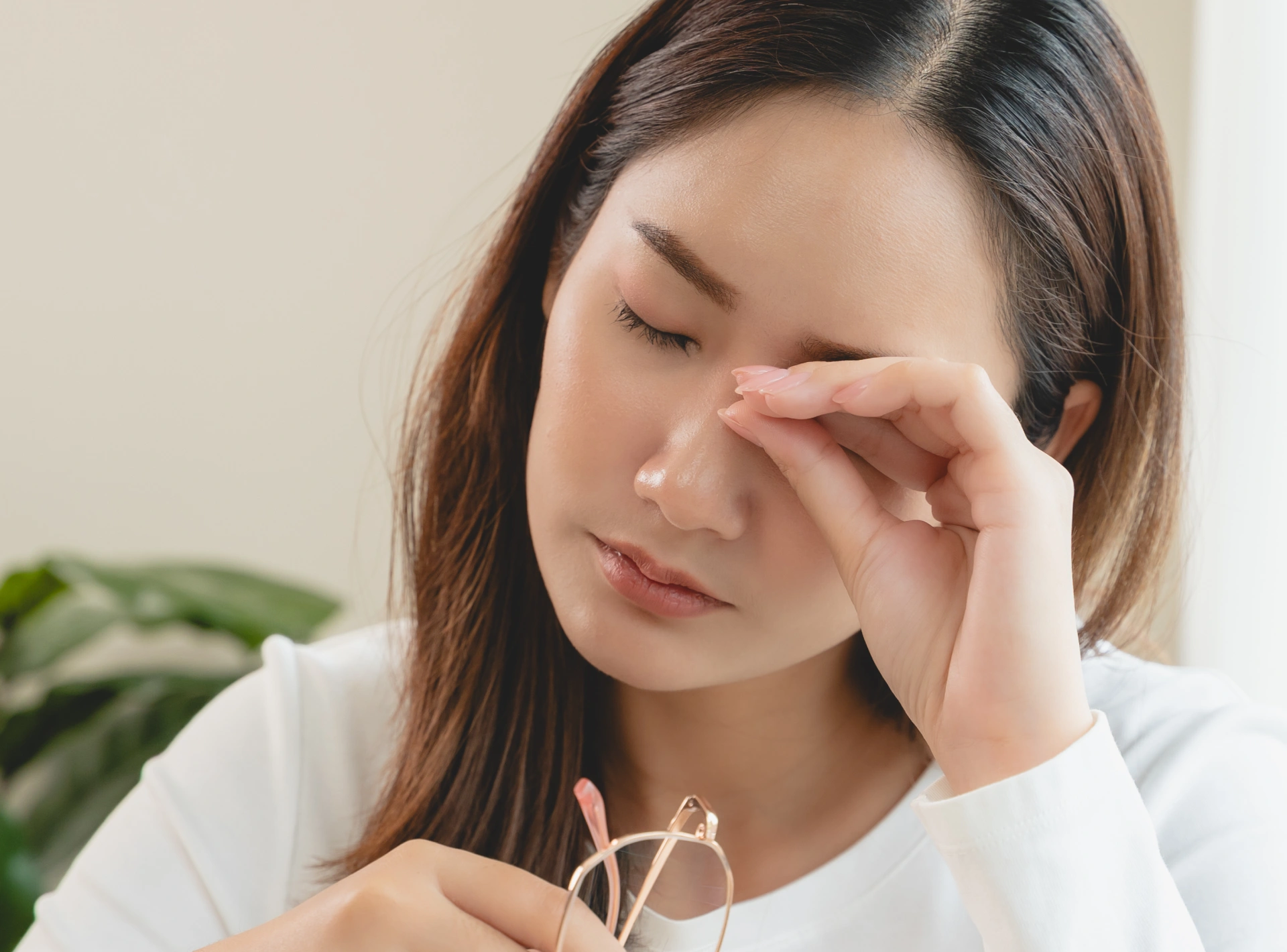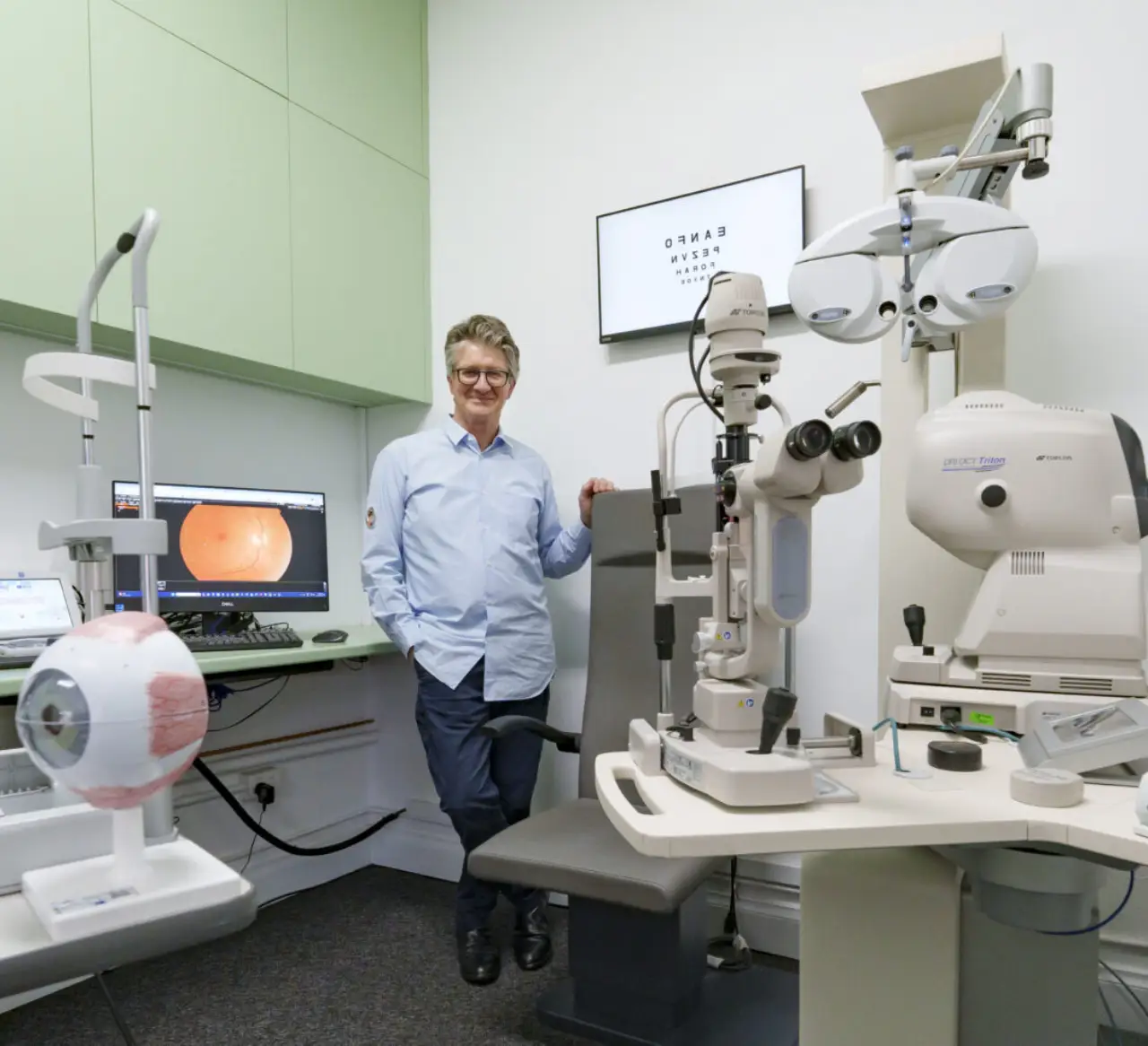

77% of Australians suffer from dry eye symptoms such as gritty, burning, and red eyes.
These symptoms can range from mild and occasional to persistent and severe.
Dry eye symptoms can be caused by aging, the environment, general health conditions, poor blinking, and medication use.
Most people who have symptoms of dry eyes have reduced oil in the tear film, which allows significant evaporation of the tears, causing dry spots. This is usually caused by diseased glands in the eyelids that have become blocked and no longer produce the quality or quantity of oil needed.
We offer a range of dry eye treatments to reduce your dry eye symptoms.
What is dry eye syndrome?
Dry eye syndrome occurs when your eyes don’t produce enough tears, or when the tears they do produce are of poor quality. This disrupts the delicate moisture balance on your eye’s surface, leading to symptoms like:
- Stinging, burning or gritty sensations
- Red, watery or tired eyes
- Blurred vision that improves with blinking
- Light sensitivity
- Discomfort with contact lenses
- Difficulty with screen use or reading
What causes dry eyes?
Evironmental factors
Various factors like air conditioning, heating, wind or low humidity can affect your eyes.
Extended screen time
Spending long periods of time in front of a screen can cause major strain.
Allergies & health conditions
Seasonal allergies or conditions such as diabetes, thyroid dysfunction, rosacea or Sjögren’s syndrome.
Medications
Certain medications can cause dry eyes, including allergy pills, blood pressure tablets, sleeping aids, and glaucoma drops.
Overused contact lenses
Old or worn contact lenses can affect your general eye health and exacerbate dry eye conditions.
Previous eye surgeries
Surgeries including LASIK and cataract procedures can also affect your eyes.
What you need to know
What is a dry eye flare-up?
What medications can worsen dry eye symptoms?
Common offenders include antihistamines, blood pressure medications, sedatives, and some medicated eye drops (especially those with preservatives). Our optometrists can review your medications to see if they may be contributing to your symptoms.
What can I do at home to help with dry eyes?
- Take regular screen breaks and blink often
- Use preservative-free lubricating drops
- Avoid eye drops that reduce eye redness
- Protect your eyes from direct airflow at night
- Avoid air-conditioning and use a room humidifier
Can contact lenses make dry eye worse?
Some contact lenses can contribute to dry eye symptoms, but the right type of lens can improve comfort. We offer specialised contact lenses, including daily disposables, hybrid lenses, and scleral lenses, which help retain moisture. If you experience dryness with contacts, we can assess your tear film and recommend the best option for you.
How do I know if I have dry eye syndrome?
Common symptoms include gritty or burning sensations, excessive tearing, blurred vision, and redness.
Can dry eye be cured?
While dry eye is often a chronic condition, effective treatments can significantly reduce symptoms and improve comfort. By addressing the underlying cause, we help patients manage their condition and prevent further irritation.


